#Peyman Moaadi
Text
Aporia (2023)
“Aporia” refers to a declaration of one’s doubt in something, often a statement which does not actually reflect the speaker’s actual belief. Within the Socratic method, it was the state in which Socrates left his verbal sparring partners after he picked apart their definitions of a concept through a series of questions that ultimately revealed his opponent’s lack of solid philosophical standing.…

View On WordPress
#aporia#edi gathegi#judy greer#mark boomer redmond#peyman moaadi#reviews#sci-fi#time travel#Whitney Morgan Cox
0 notes
Text
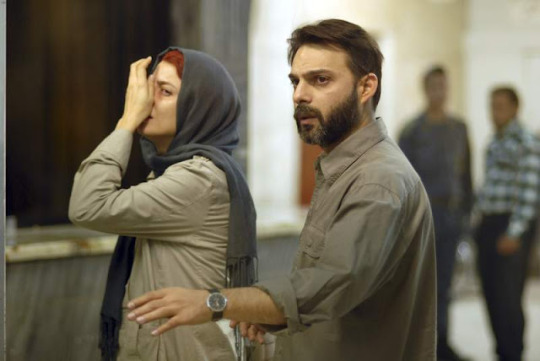
Leila Hatami and Peyman Moaadi in A Separation (Asghar Farhadi, 2011)
Cast: Peyman Moaadi, Leila Hatami, Sareh Bayat, Shahab Hosseini, Sarina Farhadi, Ali-Asghar Shahbadi, Shirin Yazdanbakhsh. Screenplay: Asghar Farhadi. Cinematography: Mahmoud Kalari. Production design: Keyvan Moghaddam. Film editing: Hayedeh Safiyari. Music: Sattar Oraki.
The original title in Persian of A Separation translates as The Separation of Nader and Simin, but the film is about more separations than just that of the husband and wife played by Peyman Moaadi and Leila Hatami. It's about the separations between parents and children, between the middle class and the laboring class, between the devout and the worldly, and between the judicial system and those it supposedly serves. And for American audiences it also serves as a reminder of the separation between the United States and the Islamic Republic of Iran. The movie was the first Iranian film to win the best foreign language film Oscar, and Farhadi's stunning script was also nominated for the best original screenplay Oscar. (It lost to Woody Allen's screenplay for Midnight in Paris.) Whatever we may think of the regime in Iran, the universality of the human problems presented in the film stands in sharp contrast to the usual American attitude toward Iranians as alien and hostile. It struck me especially because I watched another film about citizens caught in the inscrutable workings of their judicial system. Like the Russians in Leviathan (Andrey Zvyagintsev, 2014), the two Iranian families locked in conflict in Farhadi's film must cope with the seeming indifference of the judges to their complicated problems. I was feeling complacent about the American justice system until I watched a news segment on the horrific abuses of the public defender system which, especially if you happen to be poor and Black, is every bit as cruelly broken as the corrupt Russian courts and the hidebound Iranian ones.
0 notes
Text
A Separation | Another Glance at the Film Nader and Simin, A Separation
Nader and Simin, A Separation
A Separation is an Iranian drama film that was released in 2011 and was written and directed by Asghar Farhadi. The film stars Leila Hatami, Peyman Moaadi, Shahab Hosseini, Sareh Bayat, and Sarina Farhadi. A Separation is also known by its alternate title, "Nader and Simin, A Separation." The plot centers on an Iranian couple from the middle class who decide to divorce, the anguish and desperation endured by their daughter as a result of the egotistical disputes that led to their divorce, and the conflicts that arise when the husband hires a lower-class caregiver for his elderly father who suffers from Alzheimer's disease. The daughter also suffers from egotistical disputes and the divorce of her parents.
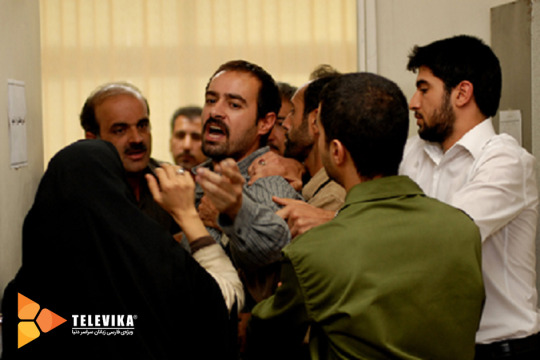
A Separation; A Movie More Than A Film
Even though it has been more than a decade since the premiere of Asghar Farhadi's most significant picture, A Separation, viewers interested in the film might find something new and appeal in viewing the film once more in the present day. When seeing the movie for a second time, one of the essential things to look out for is the discovery of minute and specific details. These details demonstrate the director's talent for turning a mundane occurrence into a dramatic situation that is both captivating and terrifying.
The success of Asghar Farhadi's fifth feature film has elevated him to such a high position that the script may easily serve as a learning unit in colleges throughout the world that teaches screenwriting and directing. In addition to having a remarkable effect on society, the picture's phenomenal success at international film festivals, for which it was nominated for the first Academy Award in the history of Iran's cinema, inspired a large number of other filmmakers to follow in his footsteps.

Because of the success of the movie "A Separation," filmmakers in Iran were inspired to produce films that could never provide the same level of creativity and effect that the story of A Separation had in the cultural and social spheres, but which nonetheless earned them recognition. It would seem that the key to Farhadi's success is a point that is both straightforward and challenging at the same time. This point is what sets him apart from all of his contemporaries and other directors. This uncomplicated argument is nothing more than an accent on the specifics.
Minute Details In “A Separation”
It is here that simple details such as taking the girl to school, leaving garbage at the door (which becomes a significant issue in court when the garbage bag is torn and the entrance stairs of the apartment are dirty), taking the change from the station attendant (which, along with the sequence of Nader's presence at Razie's house and writing a payment check in their name and recalling Nader's usual monologue about not giving money by force to anyone, shows a real manifestation of the contradictions of human behavior in different situations).
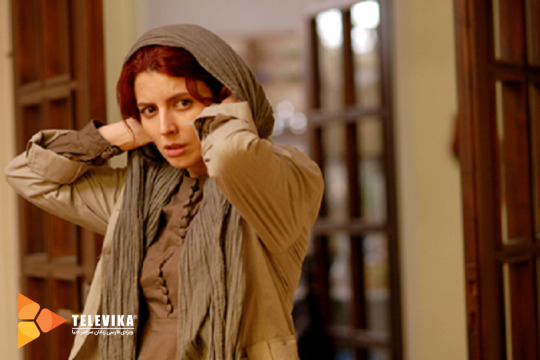
All the details above show us that we have seen a movie with an accurate and skilled filmmaker behind it that has a dramatic logic for all the moments of the story he is telling. Unlike directors who design and execute many scenes and dialogues of secondary characters just to increase the time of the film and reach the 90-minute limit of screening in cinemas; Surprisingly, Asghar Farhadi has not included any dialogue or action outside the structure of the drama or help characterization in the story.
Perhaps a look at the impact of secondary characters such as the neighbors and the teacher who tries the primary concern of the girl (Termeh, played by Sarina Farhadi), which is learning, let us know more about Asghar Farhadi's skill in complicating a simple situation through attention and focus on details.
Two Key Sequences in A Separation
Perhaps, Asghar Farhadi's intelligence can be seen in two sequences; 1) in The opening sequence - where the reason for the separation is migration to a country that offers a brighter future for them - 2) In the second scene of the film, Simin (played by Leila Hatami) amidst the clutter her house and passing through the workers who are busy carrying her piano, she went to different corners of her house to collect her belongings. This is the trembling camera on Farhadi, which, with its dynamic mise-en-scène, fuels the chaos in the atmosphere of the couple.
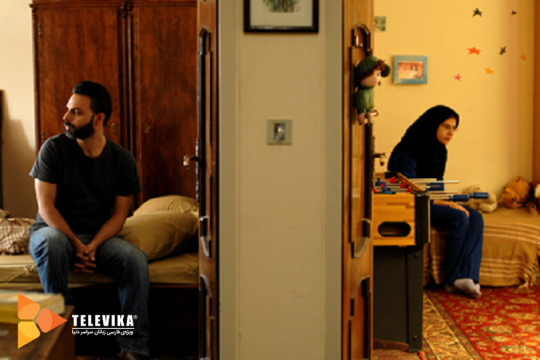
It takes about 7 minutes from the moment Simin enters the house to the moment she leaves, taking the nurse with her. During these 7 minutes, Asghar Farhadi quickly introduces us to the atmosphere of the house, the relationships between the main characters in his story, the grandfather who has Alzheimer's, and the nurse who agrees to work in their house to help the Simin family, making an acquaintance and spends the next few minutes of the film on the strength of the foundations of the drama, which all come to fruition in the second half with Razie's (played by Sareh Bayat) complaint against Nader.
A Separation Is NOT A Classic Drama
The exciting thing is that Farhadi, unlike the everyday classic dramas, which starts with a crisis in the relationship between the couple, and by involving them in a story, in the end, the story brings them to peace; The crisis of the couple in A Separation has continued endlessly, and even after solving their problem with Razieh's family (and despite the closeness of the husband and wife to each other, which leads to Simin's paternal house document being at their disposal), they are still aware of the divorce issue. It is deadlocked and makes the initial crisis of the film seem like an eternal inevitability.

The bitterness of the story takes on wider dimensions when we remember the girl who has always made her parents and those around her idol (We see the girl regularly studying and practicing the right behavior), and occasionally they teach her honesty and abstinence. She invites self-interested behavior by observing the mistakes and lies of his parents during the crisis, and she reaches strange conclusions from the complications of life, which even forces her to lie when faced with the judge's question; where she falsely says when facing the judge's question that she was the one who told her father about the exchange of phone numbers between the teacher and the nurse.
Maybe now, and in the face of the endless crisis that has gripped Nader and Simin's family, we can better understand the endgame that Asghar Farhadi has planned for the final chapter of his film. The end of the game comes from the heart of the drama itself and becomes an undeniable necessity.
All Things Turn Against Razieh
Both gender and social class are important considerations. In one of the scenes, a group of individuals can be seen lounging about the apartment and having a good time while playing table football. Family and friends are welcome to take part in the activity. But not Razieh. She is seen doing something quite pathetic in the kitchen where she is said to be working.
When Termeh's instructor Miss Ghahraii (Played by Merila Zare'i), stops over, she is shown respect due to a highly esteemed visitor. After all, she is instructing their daughter in the subject. However, what about Razieh? In addition, she is an essential family member since she is responsible for the care of Nader's father. On the other hand, nobody respects her. In addition to this, she is additionally constrained by the convictions of her own religious tradition.
The scenario, as shown by Farhadi, is like a pool of gasoline into which any occurrence falls like a lit match. Everyone is aware of their rights and how outraged they are when injustices or slights are committed, and the women bitterly realize that they must simultaneously discover a workable solution and persuade their male counterparts to accept it. However, the children are one item that cannot be negotiable.
Termeh takes the stage toward the conclusion. She observes everything, coerces her father into making a crucial admission, and is then painfully made to act in his place. Her suffering and rage are well concealed. But she is the one who will bear a dreadful, indescribable load—a moral and juridical burden. This is a pernicious kind of maltreatment that has been imposed upon her by the adults' conceit and greed. Farhadi skillfully and subtly turns this unpleasant argument into a modern tragedy.

A Separation Is Worth Watching Again and Again
In spite of Nader's careful care for his father, we still have a tendency to conceive of him as an authoritative patriarch along the lines of the character that Alfred Molina portrayed in the film Not Without My Daughter. However, after the opening scene, which is a magnificent single shot of the pair speaking to a judge who we only hear, Simin vanishes for a period of time.
When we were left alone with Nader, we quickly began to see how wrong our rapid judgment of his character had been. As we see him try to be a parent and provider for his daughter while also tending to the needs of his aging father, we start to empathize with him and may even find ourselves rooting for him. The remainder of the movie is spent with Farhadi using a maddening succession of mishaps to pull both of them closer to the core of the story. At long last, we recognize them for what they are: humans. They are not perfect, but there is hope for them still. Simply said, they have human characteristics.
#televika#farsi#seperation#asghar farhadi#peyman_maadi#leila hatami#تلویکا#جدایی_نادر_از_سیمین#اصغر_فرهادی#فیلم#فیلم_سینمایی#سریال#separation
1 note
·
View note
Photo



Saeed Roustayi - Metri Shesh Va Nim (Just 6.5) (2019)
stills
#saeed roustayi#metri shesh va nim#just 6.5#2019#2010s#iran#thriller#neo noir#navid mohammadzadeh#peyman moaadi#Boshra Film#venice film festival
3 notes
·
View notes
Text
THE NIGHT OF 🎬

Alerta minissérie de sucesso que vale cada minuto: The Night Of
SINOPSE: A investigação policial denuncia as complexas relações entre os casos analisados pela polícia de Nova York, procedimentos legais, sistema criminal e o "feroz purgatório" de Rikers Island, onde os acusados são mantidos enquanto esperam pelo julgamento.
A produção da HBO, com apenas 8 (oito) episódios foi indicada a 8 categorias no Emmy Awards.
O drama e suspense policial com direção de Steven Zaillian (O Irlandês) e Richard Price (O Preço de um Resgate) acompanha a história de Nasir Khan, um americano filho de paquistaneses.
Com foco no sistema judiciário e carcerário a série ainda levanta temas delicados como a preconceito racial e a forte discriminação sofrida pelos imigrantes nos Estados Unidos.
Bebendo da fonte de sucessos como Oz e Família Sopranos, a série traz um elenco maravilhoso com atuações magnificas.
O cristalzinho, ícone sem defeitos Riz Ahmed (Venom, Som do Silêncio) como Nasir Khan, ou “Naz”, um nova-iorquino filho de imigrantes paquistaneses, ele é um jovem tímido e que está na faculdade.

Baita ator, premiadíssimo, além de musicista e ativista. Ele luta por uma melhor representação dos muçulmanos nas produções em Hollywood, já que são sempre representados de uma maneira preconceituosa e depreciativa. Entrega tudo, né?
Ele ganhou o Emmy de Melhor Ator pela série.
Quero o Riz fazendo tudo! Inclusive sou do time que torce pra ele fazer o James Bond. Ia arrasar de 007!
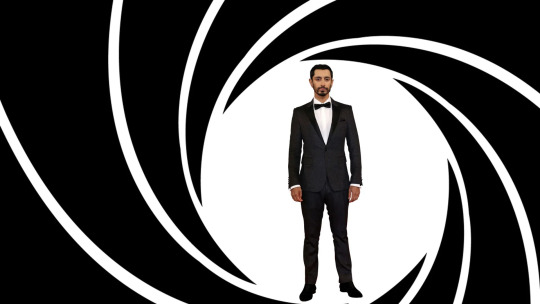
Um minuto de silêncio pra apreciar o John Turturro (A Janela Secreta, A Herança de Mr. Deeds e Transformers) nesse elenco. Um monstro atuando!
Ele interpreta o advogado John Stone, com fama de "porta de cadeia" e que se interessa pelo caso de Naz.

O talentosíssimo Bill Camp (Coringa, O Gambito da Rainha) como Sargento Box. Gostei muito do personagem!

Sofia Black-D'Elia (Projeto Almanaque, Ben-Hur, Gossip Girl) como Andrea Cornish, jovem bonita e misteriosa que cruza o caminho de Naz.
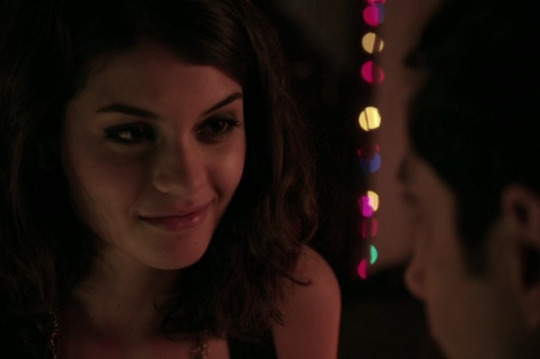
O falecido ator Michael K. Williams como Freddy Knight, um preso bastante influente na penitenciaria Rikers Island.

Jeannie Berlin (Sucession) como Helen Weiss, uma promotora que trabalha no caso de Naz.

Peyman Moaadi (Marcados pela Guerra, Esquadrão 6) como Salim Khan e Poorna Jagannathan (Em Defesa de Jacob, The Act) como Safar Khan, os pais de Naz.

Amara Karan como Chandra Kapoor, advogada de defesa.

Não coloquei a sinopse completa, pois assisti a série sem qualquer informação e acho que isso só melhorou a experiência.
O piloto da série é um dos melhores que já vi na vida, simplesmente excepcional!
Com um roteiro, direção, fotografia, elenco e atuações primorosas! A trama é intrigante e construída de maneira bastante complexa e desacelerada. Muito bem desenvolvida, transmitindo toda tensão e drama necessário para envolver o telespectador.
Uma obra direta, crua e de muita qualidade!
Curiosidades:
1 - The Night Of é inspirada na série britânica Criminal Justice, da rede BBC, que foi ao ar de 2008 a 2009
2 - James Gandolfini (Família Soprano) havia interpretado o advogado Jack Stone no piloto, em razão de sua morte quem assumiria era Robert De Niro, mas posteriormente precisou abandonar e, assim, o papel ficou com John Turturro.
3 - Foi indicada à categoria de melhor série internacional no Bafta 2017.
Disponível: HBO
Classificação 18 - Não recomendado para menores de 18 anos
#THE NIGHT OF#Steven Zaillian#Richard Price#Riz Ahmed#John Turturro#Bill Camp#Sofia Black-D'Elia#Michael K. Williams#Jeannie Berlin#Peyman Moaadi#Poorna Jagannathan#Amara Karan#HBO#minissérie#drama#suspense#policial
2 notes
·
View notes
Text










I miss them more than anything
#ben hardy#joe mazzello#lucy boyton#rami malek#allen leech#gwylim lee#bohemian rapsody movie#mélanie laurent#corey hawkins#peyman moaadi#manuel garcia rulfo#adria arjona#lior raz#dave franco#6 underground#my heart 😭😭😭😭#just 😍😍😍😍😍#wow 😍#im so 😻😻😻#my baby 🥺🥺🥺#omg 😭😭😭😭#ily all 💖💖
33 notes
·
View notes
Photo
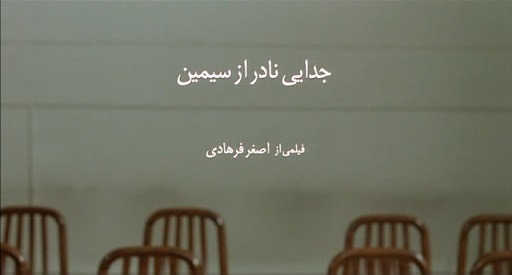
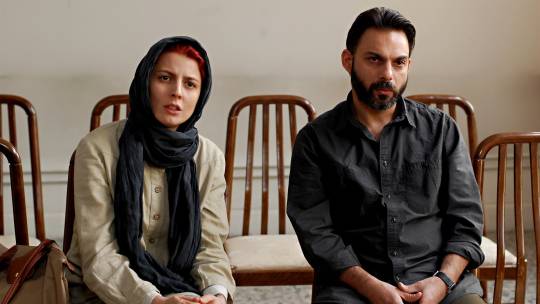

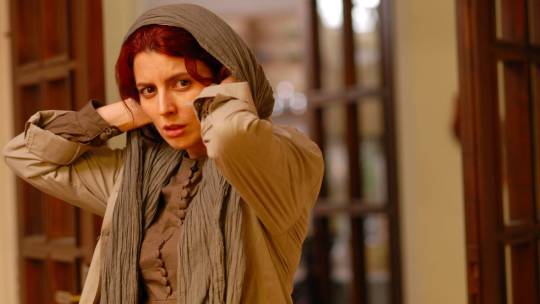
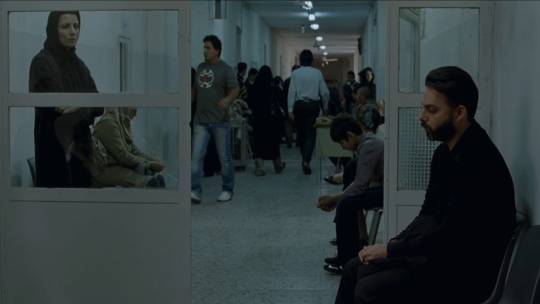
TPS’S 25 ADDITIONAL FAVORITE MOVIES OF ALL TIME (2020 Edition)
A Separation
Director: Asif Kapadia
Cast: Leila Hatami, Peyman Moaadi, Sarina Farhadi, Sareh Bayat, Shahab Hosseini, Kimia Hosseini, Merila Zarei, Babak Karimi, Shirin Yazdanbakhsh, Ali-Asghar Shahbazi
Best Moment: Hodjat and Razieh’s ethical debate
#favorite movies#25 favorite movies#20 favorite movies#a separation#asif kapadia#leila hatami#peyman moaadi#sarina farhadi#simin#nader
3 notes
·
View notes
Text
#a separation#film#review#asghar farhadi#leila hatami#peyman moaadi#shahab hosseini#sareh bayat#sarina farhadi
3 notes
·
View notes
Photo










You and me, we are at war.
262 notes
·
View notes
Photo

Camp X-Ray (2014) dir. Peter Sattler
https://www.youtube.com/watch?v=xNOIixU8VhI
10 notes
·
View notes
Text
You Be the Judge in the High-Stakes Iranian Legal Drama A Separation

by J. HOBERMAN
DECEMBER 28, 2011
A Separation—the fifth feature by Iranian writer-director Asghar Farhadi—is an urgently shot courtroom drama designed to put you in the jury box. Dispensing with preliminaries, it opens at a judicial hearing where, facing the camera that stands in for the judge, a quarrelsome husband and wife each make their case.
Both are middle-class members of the Tehran intelligentsia. Simin (Leila Hatami) has finally obtained official permission for her family to move abroad, but husband Nader (Peyman Moaadi) has apparently changed his mind. He feels obligated to care for his aged, Alzheimer’s-afflicted father, and, in order to leave the country, Simin is compelled to sue for divorce. Which spouse is being selfish? What’s best for their 10-year-old daughter, Termeh?
Simin’s petition is denied. (“Your problem is a small problem,” the judge concludes.) She moves in with her parents; Nader stays with his father, and Termeh does, too. Everybody is super-stressed. Without Simin, Nader needs a caretaker to look after the old man and hires Razieh (Sareh Bayat), a slightly younger, less educated, equally anxious woman who brings her small daughter to work with her and has taken the job without the knowledge of her devout, unemployed husband, Hodjat (Shahab Hosseini).
A Separation has already established a hectic, bustling visual style—one thing after another, mainly in medium close-up—and, with all players in position, it heads directly into a real crisis. Nader comes home to find his father’s wrists tied to the bed, with Razieh out on an errand. They have words; fired and (perhaps gratuitously) accused of stealing, Razieh demands her wages, is shoved out of the apartment, falls down the stairs, and (Nader later discovers) winds up in the hospital. Turns out she was pregnant and has suffered a miscarriage. Thus the original case is subsumed in a larger one. Hodjat files a complaint, and, according to the law, Nader could be guilty of murder.
Farhadi has called his movie “a detective story without any detectives” and structured events so that the viewer is compelled to mentally review a number of earlier, seemingly inconsequential events. As with the divorce proceedings, the miscarriage case is tried in a small room by a one-man judge-jury–prosecuting attorney. Largely unable to control his rage, Hodjat argues with witnesses, butts in on the questioning, and, at one point, manages to get himself arrested by self-righteously telling the judge to “fear God.” Not that this helps Nader, who is deemed guilty even by his wife—she assumes that he knew Razieh was pregnant when he pushed her.
With its two couples warring on two fronts on behalf of their offspring, A Separation is an Iranian analogue to Roman Polanski’s recent parents-in-conflict drama Carnage, but the stakes are higher, the class lines sharper, the pace more grueling, and the action (though not confined to a single apartment like Carnage is), largely played out in stairwells and hallways, more claustrophobic: Each of the four principals is trapped in (or defined by) an individual nexus of social attitudes, family obligations, financial concerns, and moral beliefs that Farhadi seems disinclined to judge.
Given the adult confusion, it’s the two young children who have the clearest vision, or at least the most acute sense of the situation. What’s fascinating is how the various issues—religious or practical—are played out in these two quite different families, yet always come down to irreconcilable differences between rebellious women and their stiff-necked, controlling men. The meek and pious Razieh becomes as recalcitrant in her way—which is to say, as true to her nature—as the apparently godless Simin.
Everyone has their reasons, but not all reasons are equal. Whether as a good neorealist or, given his own situation as a filmmaker in Iran, just a canny realist, Farhadi resists the notion of narrative closure. As the great Sam Fuller wrapped up Run of the Arrow, “The end of this story will be written by you!”
#iran#cinema#asghar farhadi#a separation#the village voice#leila hatami#peyman moaadi#sareh bayat#shahab hosseini#roman polanski
0 notes
Photo





A Separation (2011) dir. Asghar Farhadi
#a separation#asghar farhadi#leila hatami#peyman moaadi#screencap#film#movie#film caps#film stills#cinematography#a separation*
39 notes
·
View notes
Photo

Shahab Hosseini and Taraneh Alidoosti in About Elly (Asghar Farhadi, 2009)
Cast: Golshifteh Farahani, Shahab Hosseini, Taraneh Alidoosti, Merila Zare'i, Mani Haghighi, Peyman Moaadi, Ra'na Azadivar, Saber Abar. Screenplay: Asghar Farhadi, Azad Jafarian. Cinematography: Hossein Jafarian. Production design: Asghar Farhadi. Film editing: Iman Rahimi, Hayedeh Safiyari. Music: Andrea Bauer.
Sepideh (Golshifteh Farahani) invites the unmarried Elly (Taraneh Alidoosti), one of her daughter's teachers, to spend a three-day weekend with her, her husband, and two other couples and their children, at a villa overlooking the Caspian Sea. Also joining the group is the recently divorced Ahmad (Shahab Hosseini), who is taking a vacation from his job in Germany. Because of the Islamic Republic's prohibitions against unmarried men and women traveling together, Sepideh persuades the group to pretend that Elly and Ahmad are newlyweds, a lie that begins to backfire when the managers of the seaside property want to celebrate the young couple's marriage. Embarrassed by the attention, Elly decides to leave after the first night, which Sepideh, set on her matchmaking, tries to prevent. Writer-director Asghar Farhadi sets all of this up carefully, so that the story could easily turn toward comedy. It doesn't. When the young son of Shoreh (Merila Zare'i) and Peyman (Peyman Moaadi) almost drowns, Elly disappears during the chaos of his rescue and resuscitation. Has she drowned trying to rescue the boy, or has she made good on her determination to return to Tehran? Sepideh is particularly frantic when Elly's disappearance is noted, plunging into the sea to try to find her. It's then that we begin to discover that Sepideh knows a great deal more about Elly than she has told the others, and a great snarl of complications develops, especially when the group begins to create more stories to tell the police, the property managers, and Elly's family. The performances of the cast -- some of whom, like Moaadi, Zare'i, and Hosseini, will be familiar from Farhadi's 2011 Oscar-winning A Separation -- are uniformly brilliant, and Farhadi's script and direction result in a film that is both suspenseful and morally complex. The film has a subtext of criticism directed at the Iranian government, under which people routinely dissemble in order not to bring censure upon themselves -- especially the young professionals like the ones in the film. Is it significant that the last scene of the movie shows the group trying to free a red BMW from the sand in which it has bogged down?
9 notes
·
View notes
Photo










A Separation (2011)
Directed by Asghar Farhadi
Cinematography by Mahmoud Kalari
“What is wrong is wrong, no matter who said it or where it’s written.”
#a separation#2011#asghar farhadi#mahmoud kalari#peyman moaadi#leila hatami#sareh bayat#cinema#movie#film#still#frame#movie stills#movie frames#cinematography#screencaps#cinemabreak
620 notes
·
View notes
Photo

#the night of#steven zaillian#richard price#michael k. williams#riz ahmed#john turturro#peyman moaadi#crime#murder#mistery#trial#suspense#hbo#home box office#jail
6 notes
·
View notes
Text
CAMP X-RAY

Siendo fan de Kristen Stewart y de las últimas películas en las que ella habría participado, era de esperarse que Camp X-Ray se encontrara en mi lista de pendientes, y aunque la cinta no llegó a cines, la había estado evitando de los piratas de la internet, pues sentí que ésta merecía una mejor plataforma. (Gracias al cielo que así lo hice) Recientemente Netflix decide agregarla a su repertorio y ya no tenía excusa, debía verla, así que acá estoy para dar testimonio de lo que vi.
Comenzando con la caída de las torres gemelas, se esperaría una película cargada de mensajes políticos; ideológicos inclusive, pero no, la cinta se resume en los pequeños instantes compartidos entre una soldado (Kristen Stewart) recién llegada a Guantánamo Bay y un detenido (Peyman Moaadi). Ambos se encuentran atrapados bajo la misma rutina y aunque sólo a uno lo rodeaban 4 paredes, el día a día en la prisión y el peso emocional de lo vivido, llegarían a ser suficiente carga para las convicciones de Cole (Kristen), quién no puede escapar de la realidad que ahora la atormenta.
El drama planteado dentro de los diálogos que compartían, aunque emocional, traen consigo la simplicidad de una charla sincera y realista, donde Harry Potter, Hannibal Lecter, Nebraska y el fútbol hacen parte de la conversación. La íntima relación que va creciendo de sus encuentros se logra a partir de estos altibajos, facilitando al espectador relacionarse, no con su situación, sino con la conexión que se construye al conocer a una persona; alguien que de seguro será tu amigo.
El mérito que acompaña esta puesta en escena sin duda va para el guionista y director Peter Sattler, quien guía a los actores a través de los espacios confinados y reducidos, conectándonos a ellos a pesar de la limitación y las barreras físicas que se encuentran presentes en las conversaciones.
Es increíble cómo te enamoras de los dos personajes principales a pesar de las diferencias abismales que los separan, uno, Cole, la soldado que quiere cambiar el mundo y dos, Ali, el Detenido terrorista, ambos frágiles, atrapados, ansiosos por la libertad y a la vez amarrados a los estereotipos que se conciben bajo esos dos títulos. Cada uno comienza su recorrido actuando a cabalidad el papel designado, Cole, una chica que viene de un pueblo desolado en Florida que se une al ejercito para encontrarle significado a su vida, y Ali, un intelectual Musulmán enemigo de USA. Ambos, poco a poco, dejan de lado sus roles y muestran las diferentes capas que forman a un ser humano, la naturaleza de su relación e intenciones y el deseo por transformar su entorno.
Creería que la película cumple a cabalidad con el mensaje que se propone a transmitir, que para mí, es la interiorización y entendimiento de que no todo es blanco y negro, y cómo los matices dentro de estos dos polos, pueden cambiar hasta la más fuerte de las convicciones. El verdadero reto es darse cuenta que el cambio no sólo proviene de acciones grandilocuentes, por el contrario, el cambio llega en esos pequeños instantes, en esos pequeños gestos que pueden salvar no a millones, pero sí, pueden salvar una vida.
Duquesa Von Eggersen
5 notes
·
View notes